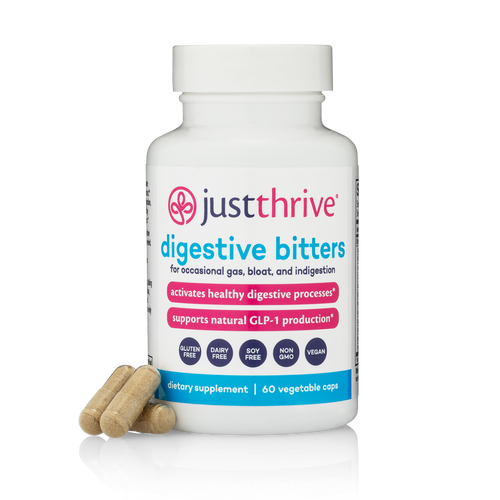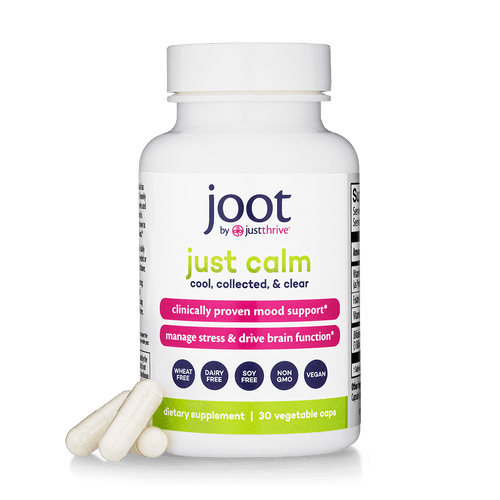The holidays are great for a lot of things: reconnecting with those you love, taking time off of work, setting new goals for another year.
But, even though there’s a lot of year-end festivities to look forward to, the holidays also come with plenty of stressors:
- You’re trying to finalize year-end work reports…
- Attend all those holiday parties (even the ones you don’t really want to go to)...
- Get those Black Friday deals…
- Wrap all the gifts without the kids seeing…
- Coordinate family dinners and gatherings...
Amidst the chaos, it’s important to make sure you don’t let your own health take a hit with all the different things on your plate (pun intended, and we’ll talk about food in here!)
Long story short: If you do one thing this holiday, manage your stress by focusing on self-care. Even better: kick it up a notch to keep the holiday craze at bay.
Here are some of our top ways to take care of yourself during the holiday season.
Top 10 Holiday Self-Care Tips
1. Prioritize Quality Sleep
Everyone knows they “should” sleep more, but very few people actually make it a top priority. However, this sage wisdom shouldn’t be ignored, and here’s why:
Sleep is the body’s main time to recharge, repair, and reset for your next day. Some of the major repairs that happen in your sleep include:
- Brain detoxification & memory storage
- Cellular repair in every part of the body
- Hormonal balancing
- Neurological reprogramming
Simply put: sleep is necessary for optimal health and maintaining daily functions. And – It’s your body’s way of taking care of itself without you having to do any extra work.
Beyond all of the repair, getting adequate rest allows your immune system to stay strong. Studies show that those who get enough sleep each night are far less likely to succumb to an infection.
Why add another worry to your plate by risking those holiday sniffles?
If you’re looking for the simplest and most cost effective way to take care of yourself, this is it. Make sure you’re putting those 8 hours on your calendar and stick to them.

2. Start or keep up with your exercise routine
If you’re typically active, don’t let that full holiday schedule keep you from sticking to your workout routine. And if you’re not currently active, the holiday season is a great time to get moving.
Exercise is a seemingly contradictory topic to cover when it comes to stress.
In one sense, exercise counts as a type of physical stressor. The soreness you feel after a tough workout is due to micro-tears in the muscle tissue. These small “injuries” count as physical stress.
However, when it comes to mental stress, there is solid evidence to show that exercise helps to balance things out.
Since our modern world doesn’t rely on physical activities - like hunting and gathering - to survive, our bodies are currently playing catch-up with their hormones.
Our brains and hormones were developed to deal with the occasional heightened stress of running from a saber tooth tiger. Since we’re not in that environment anymore, our brains now react to mental stressors from work and daily life in the same way: by dumping cortisol (your stress hormone).
One of the benefits of physical activity is that it mitigates those stress hormones and “depressurizes them” so that they don’t build up in the body and cause the symptoms of chronic stress (which can lead to health problems when not addressed).
Exercise has also been shown to increase endorphins and mitochondria, helping with mood improvement and maintaining higher levels of energy. So, when you feel overwhelmed, keeping moving can help you stay positive and fueled.
And when it comes to addressing the physical stressors that exercise can create, prioritizing sleep (as we just discussed) and supplementing with amino acids and vitamin K2 can help support the body and keep you healthy and strong long-term.
Adequate sleep helps to rebuild the muscles that are worked during exercise, and vitamin K2 can help drive the optimal health of your bones and heart.
When you pick an exercise, just remember: any movement counts! Walking, dancing, weight lifting, kayaking, skiing, or anything else that sounds fun and active to you can work.
The most important thing is that you get out and do it.
3. Try a new breathwork technique
You’ve probably heard about “deep breathing” to de-stress. And while simple deep breathing is a great way to refocus, there are some more targeted techniques you can use to find calm.
Box breathing is a particularly simple and effective approach: pick a number, and that will be your “count” for each section of breath.
For example: if you pick a count of 4, you would breathe in for 4 seconds, hold the inhale for 4 seconds, exhale for 4 seconds, and hold the exhale for 4 seconds.
This easy practice, done for a few minutes, can help to ease anxiety in the moment rather quickly.
A slightly more intense version of breathwork is the Wim Hof method. This technique involves breathing in and out at an even pace with no holds between breaths, then, at the end of 40 breaths, you hold your breath for as long as you’d like. This version of breath work is great for managing stress, and has also been shown to support your lung and immune system strength.

4. Take an aromatherapeutic bath
Taking a bath on its own can be relaxing, but why not crank it up another notch by adding in some essential oils for aromatherapy?
Certain essential oils (like lavender) work really well to help calm you down, and can be a great and safe addition to a warm bath.
Not only do certain oils help with relaxation or handling mental stress, others (like chamomile) have been shown to help improve sleep.
Try drawing some hot water, playing some calming music, and throwing a few drops of each oil into the tub to wind down before bed.
5. Load up on nutrients
This list wouldn’t be complete without talking about your diet. While holiday parties and their treats are inevitable, as best you can, try to keep the bulk of your food intake healthy.
When you’re not at holiday events, stick to your normal healthy eating habits. Include lots of fresh vegetables, healthy fats, healthy proteins, fermented foods and prebiotic starches.
Prebiotics are a special type of fiber that feeds the bacteria in your gut. The result? When your gut is healthy, digestion is smooth, and food is passed through your body easier. You can find prebiotics in a range of foods common foods like:
- Onions
- Mushrooms
- Cabbage
- Asparagus
- Peas
- Watermelon
- Peaches
- Chickpeas
- Lentils
- Oats
- Cocoa
- Flaxseed
What about dessert? It’s important to choose your treats wisely, as too much sugar in your diet can cause serious disruptions in your gut microbiome and immune system.
Of course, it’s not always easy to find prebiotic food options or sugar-free treats at holiday parties. That’s why it’s crucial to make gut support a part of your day to day life so that when something less desirable enters your system, your body is less likely to get knocked off-track.
For ongoing gut support, a great option is to choose a high quality prebiotic supplement (like Just Thrive Precision PREbiotic)to keep your gut feeling great. Not only will this help your beneficial bacteria thrive, a healthy gut means healthy gut flora which in turn help your body absorb nutrients from food more effectively.
6. Take care of your beneficial gut bacteria
As much as possible, make sure that the foods and supplements you consume support the growth of your good gut bacteria.
Think of your gut like a school bus. You can only fit so many passengers (good and bad bacteria) inside before it reaches capacity. For ideal gut health, you’ll have more beneficial bacteria “on the bus” to help crowd out the bad guys and ensure more can’t get on. If the ratios are flipped, too much unhealthy bacteria make it hard for your good gut bugs to gain a foothold, and can lead to serious health problems (including leaky gut).
In addition to smart eating, taking a quality probiotic supplement (like Just Thrive Probiotic), can really really give you a leg up on stress, and here’s why.
Your gut is responsible for 95% of the production of your “happy hormone,” Serotonin. Having a healthy gut full of probiotic bacteria encourages the production of this and several other key neurotransmitters that control mood and stress. So a healthy gut truly equals a healthy and happy YOU.
7. Have fun but balance your alcohol intake
Enjoying some alcoholic beverages is a common part of the holiday season. While they can be a fun way to enjoy the festivities, moderation is the best way to avoid feeling hangover regret the next day.
And when you do choose to drink, make sure to support your body in the best ways possible:
- Drink lots of water to stay hydrated
- Avoid sugary mixers to maintain your immune system
- Supplement with gut-healthy polyphenols and amino acids
By watching your alcohol intake, and supporting your body when you do drink, you‘ll have healthier morning-afters. Plus, smart alcohol consumption means your sleep quality will be better and your mood will likely feel balanced.

8. Naturally detox your body
Taking up a practice like meditation or sitting in a sauna can do wonders for your stress and mental health.
You might not consider meditation to be a detox technique, but it turns out that it can most certainly help! Meditation has been shown to help people detox their dependency on electronics use, allowing them to relax easier (and turn off those stress-inducing screens). With everything on the news these days, we could all use more opportunities to unplug!
A more physical way to support the body’s detox is by sitting in a sauna. While the many specific mechanisms of physical detox require more research, many studies agree that people who add in a sauna routine to their health regimen feel physical benefits.
One area that does have quite a bit of research behind it is the use of saunas in fighting infection. This study shows that certain viruses and bacteria cannot handle the heat of a sauna, allowing the body to stay healthy and protected.
9. Drink tea
Sometimes just thinking about enjoying a hot cup of tea is enough to breathe a little easier. But there’s a little more at play for your health than just your imagination.
Good tea is jam-packed with antioxidants, phytochemicals, and the amino acid L-theanine.
Antioxidants and phytochemicals help your body to fight off physical stressors – They’re like little bodyguards for your cells against harmful byproducts of stress.
L-theanine is a unique amino acid that has been shown to help manage brain activity in humans. It allows the brain to more easily drop into alpha state, which is a relaxed brainwave that can often occurs right before sleep.
L-theanine alone makes adding some tea to your self-care routine worth it! And if you’re craving some holiday flavors, there are plenty of delicious teas out there made with high-quality cinnamon or adaptogens that combine yummy flavor with health power.
10. Get outside (in the sun)
Last but not least, keep getting as much sunlight as possible!
It’s more difficult to do so in the winter, but trying to get out in nature can be great for your mental wellbeing. Sunlight helps your body make some vitamin D, which is excellent for your all-around health.
Seasonal Affective Disorder (SAD) is a common occurrence during the winter months, and if you’re deficient in vitamin D, you’re much more likely to suffer from it. Vitamin D is a precursor to serotonin, the body’s mood regulating hormone, and without enough of it you could feel the effects of stress more than normal.
Avoiding holiday stress
You can’t change how busy this time of year is, but you can choose to take better care of yourself to enjoy more and stress less.
Don’t let the busier schedule of the holidays stop you from prioritizing yourself!
We hope these tips will help you get the most out of your holiday season...and lead you into a very happy new year.














